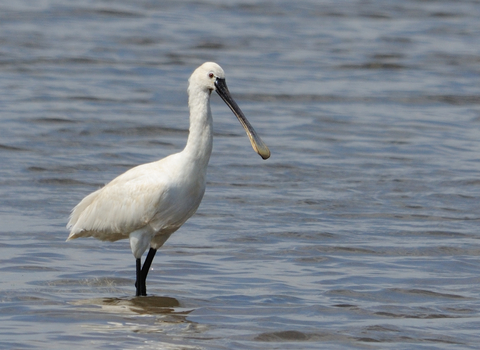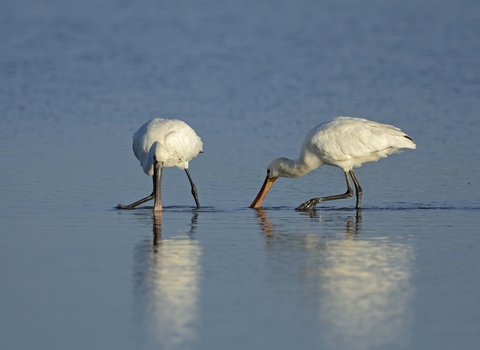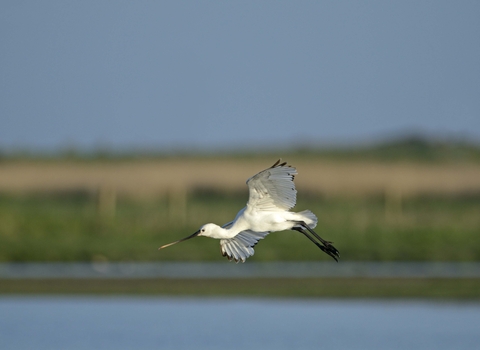
©Amy Lewis

©David Tipling/2020VISION

©David Tipling/2020VISION
European spoonbill
The distinctive sight of a spoonbill is becoming increasingly common in the east and southwest of England, with colonies of breeding birds now established.
Scientific name
Platalea leucorodiaWhen to see
January to DecemberSpecies information
Category
Statistics
Length: 78-85cm Wingspan: 1.2m Weight: 1.1-1.9kgClassified in the UK as Amber under the Birds of Conservation Concern 5: the Red List for Birds (2021). Listed under CITES Appendix II. Protected in the UK under the Wildlife and Countryside Act, 1981.
